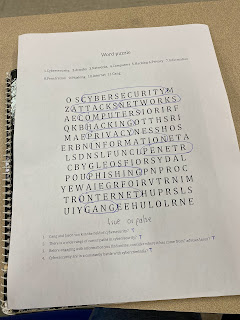Sunday, June 4, 2023
Demonstrations
Teaching Receptive Skills
Welcome everyone to another blog's entry!
Receptive skills refer to the ability to understand and comprehend spoken or written language. These skills include listening and reading comprehension. Teaching receptive skills is important for students to be able to communicate and interact effectively with others.
To teach receptive skills, it is important to create a conducive and engaging learning environment. This can be achieved by using a variety of teaching strategies, such as authentic materials, interactive activities, and differentiated instruction.
Listening comprehension is an essential skill for effective communication. To teach listening comprehension, it is important to use authentic materials such as videos, podcasts and songs. These materials expose students to real-life situations and help them develop their listening skills.
Interactive activities such as role-plays, group discussions and listening games can also be used to make the learning experience more engaging and fun. In addition, if learners receive feedback on their listening skills, they can improve and increase their confidence.
Teaching Reading Comprehension
Reading comprehension is another important receptive skill. To teach reading comprehension, it is important to use materials appropriate to the level and interests of the students. These can be authentic materials, such as newspaper articles, stories and novels.
Interactive activities, such as reading circles, summarizing exercises and discussion groups, can also be used to encourage engagement and comprehension. In addition, teaching students strategies such as skimming, scanning, and predicting can help them become more efficient readers.
Differentiated Instruction in Receptive Skills
Differentiated instruction is an important approach to teaching receptive skills. It involves tailoring instruction to the individual needs and abilities of each learner. To do this, teachers can use a variety of strategies, such as flexible grouping, tiered tasks, and a variety of instructional materials.
Through differentiated instruction, teachers can ensure that all students feel stimulated and engaged in the learning process. This approach can also help students develop their receptive skills at their own pace and in a way that best suits them.
Assessment of receptive skills
Assessment of receptive skills is important to determine the progress of learners and identify areas in which they need improvement. This can be done through a variety of assessment methods, such as questionnaires, tests, and performance tasks.
It is important to use a variety of assessment methods to gain a comprehensive understanding of learners' receptive skills. In addition, providing learners with feedback on their performance can help them understand their strengths and weaknesses and guide their learning.
What makes a passage easy or difficult?
In general, listening texts are easier if:
- They are fairly short.
- They have one or two easily distinguishable speakers.
- The speaker speaks slowly (yet naturally), with a standard accent.
- You can hear the speaker well.
- The topic is familiar.
- The structure of the text is simple and straightforward.
- The students are interested and prepared for what they are about to hear.
- They contain simple language
- Are short
- Contain simple sentences
- Are clearly organized
- Are objective
- In standard English
- The subject matter is concrete and familiar
- Are supported by layout, headings, images, graphics, etc.
Last Entry Groups 7 & 8 (Nov 9th)
Welcome to my last Didactics II entry. I have to admit it, but I feel a little sad that everything has come to an end, especially this class...

-
This blog entry begins after Nidia's participation in the middle of class on Thursday, May 4. In which we had some fun activities, such ...
-
Hello everyone! Welcome back to the blog for this week!😀 In this class we did some voice projection exercises. Lic Orlando started with som...
-
Hi, everyone! Welcome to another blog's entry😆 Its important to mention that writing involves many different aspects. It is useful to ...

















